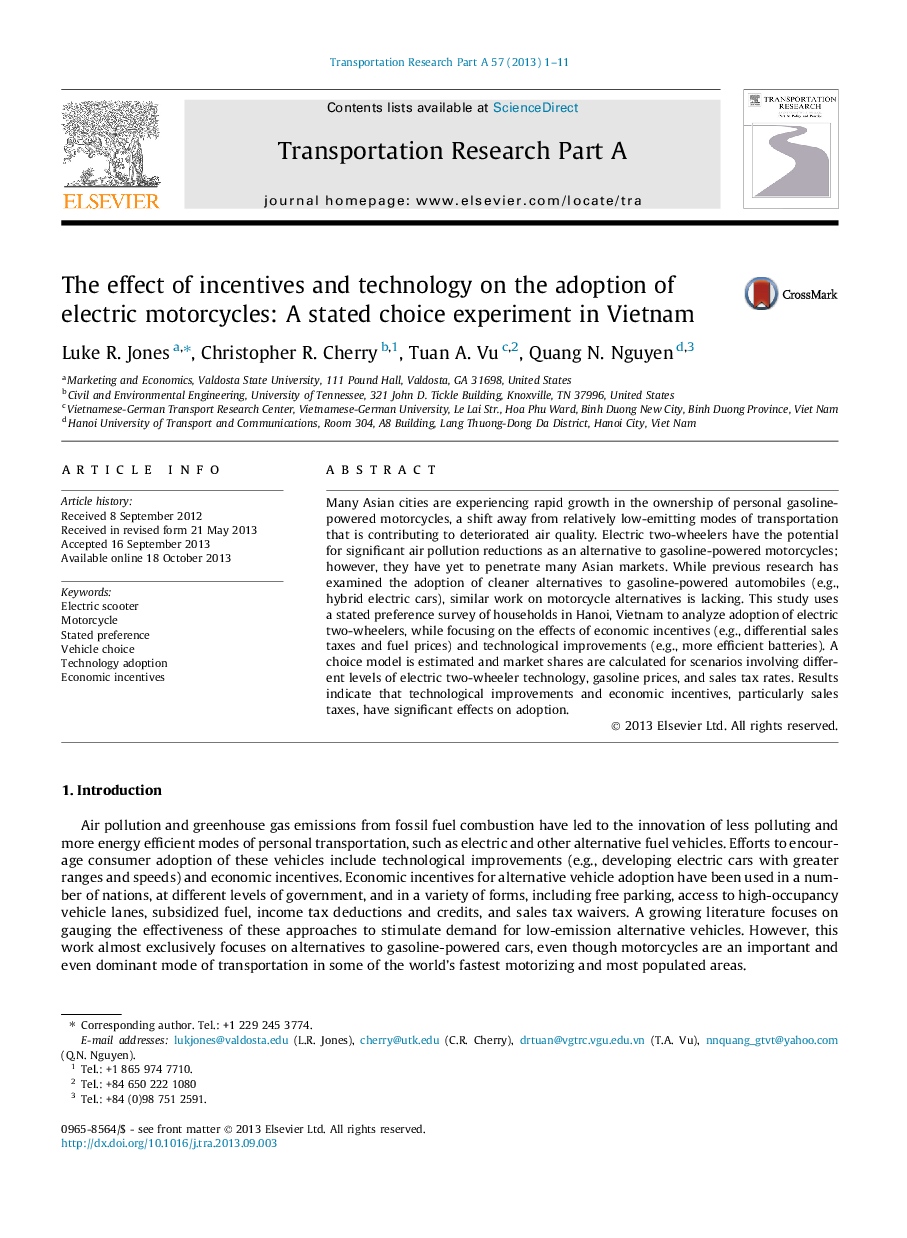| Article ID | Journal | Published Year | Pages | File Type |
|---|---|---|---|---|
| 310775 | Transportation Research Part A: Policy and Practice | 2013 | 11 Pages |
•Stated preference survey of Vietnamese households on motorcycle choice.•Sales tax incentive is a strong stimulus for electric motorcycle adoption.•Consumers willing to pay for technology-based performance improvements.•Future fuel price savings important but highly discounted.
Many Asian cities are experiencing rapid growth in the ownership of personal gasoline-powered motorcycles, a shift away from relatively low-emitting modes of transportation that is contributing to deteriorated air quality. Electric two-wheelers have the potential for significant air pollution reductions as an alternative to gasoline-powered motorcycles; however, they have yet to penetrate many Asian markets. While previous research has examined the adoption of cleaner alternatives to gasoline-powered automobiles (e.g., hybrid electric cars), similar work on motorcycle alternatives is lacking. This study uses a stated preference survey of households in Hanoi, Vietnam to analyze adoption of electric two-wheelers, while focusing on the effects of economic incentives (e.g., differential sales taxes and fuel prices) and technological improvements (e.g., more efficient batteries). A choice model is estimated and market shares are calculated for scenarios involving different levels of electric two-wheeler technology, gasoline prices, and sales tax rates. Results indicate that technological improvements and economic incentives, particularly sales taxes, have significant effects on adoption.
